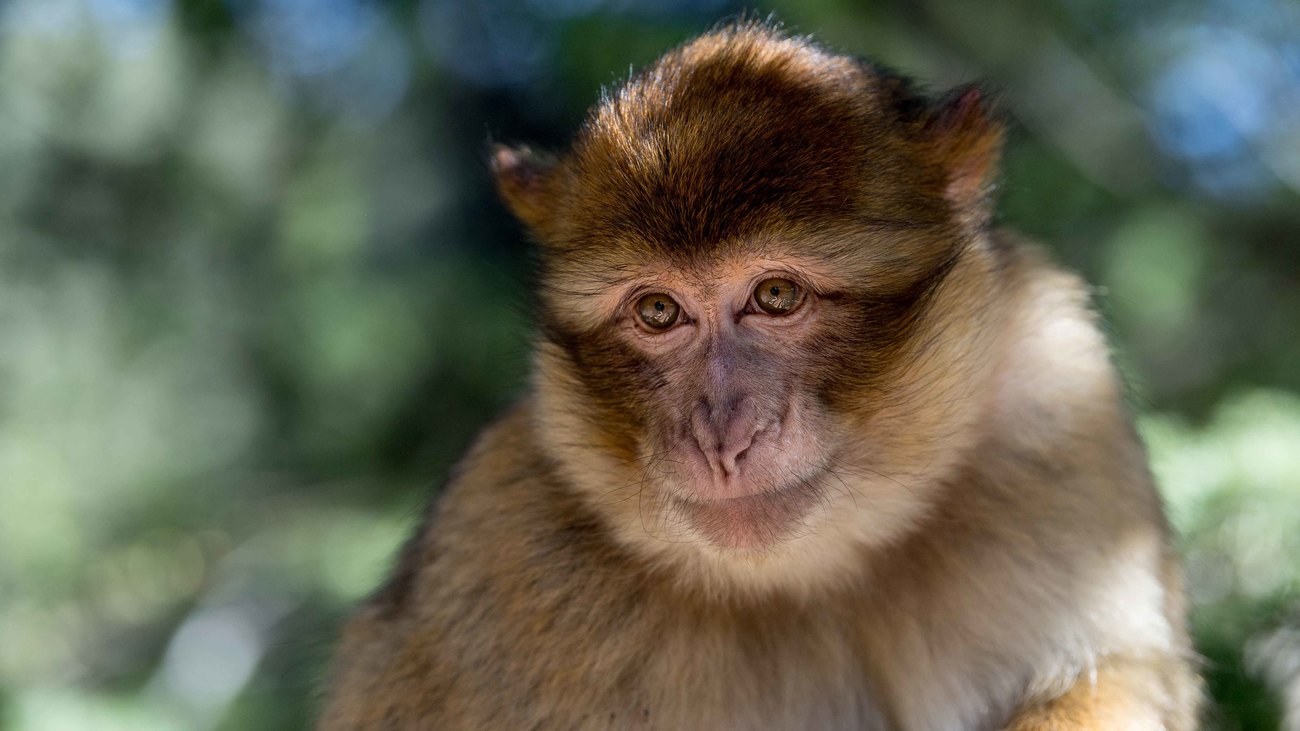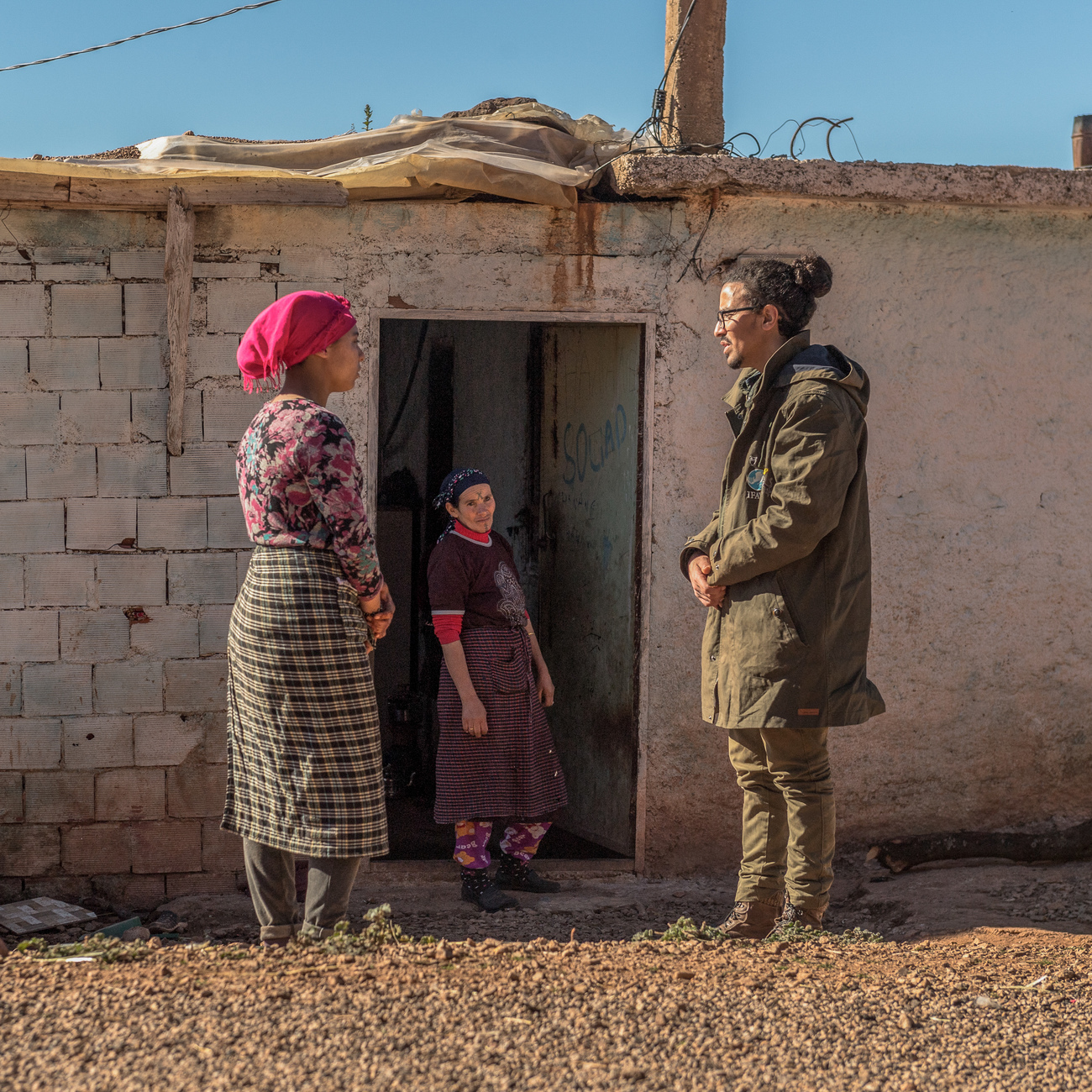Born to be Wild - Morocco
Saving Barbary macaques in one of their last remaining habitatsThe Cherry Tree Association: developing coexistence between farmers and Barbary macaques
The Cherry Tree Association: developing coexistence between farmers and Barbary macaques

It was mid-morning in Azrou and the sun was shining across the Middle Atlas mountains in Morocco. My colleagues and I were driving to a nearby community for our first big group meeting to discuss the challenges local fruit farmers face due to crop raiding by Barbary macaques. Despite participating in over 100 community meetings around the world in my career so far, I felt the butterflies in my stomach again, as I always do. The stakes are high. People’s lives are being negatively impacted by an endangered species simply doing what comes naturally: eating a tasty food source in a place always known as home.
This first community meeting had the potential to spark a partnership with the community that helps them address this problem in a sustainable way that benefits all affected families and avoids harm to animals. I knew that in a little while people would be walking through the door carrying their frustrations and demands for a solution that we would not be able to offer that day. I knew the solution has to come from the people whose lives and futures are directly affected. The people who know the land, the resources, the culture. It must come from them. It was therefore critical to manage expectations and ensure people still left feeling hopeful and excited about the prospect of what we could all achieve if we work through this challenge together.
We were there that day as part of a wider program aimed at sustainably protecting endangered Barbary macaques - one of the most frequently seized CITES-listed mammals in the EU. Funded by the Dutch Postcode Lottery, the Born to be Wild project is initiated by Animal Advocacy and Protection (AAP) and executed together with IFAW. The project is designed to build on the success of previous initiatives to stop the poaching and smuggling of Barbary macaques, build enforcement capacity, rescue animals who are caught in trade and raise awareness amongst local communities and tourists on actions they can take to contribute.

It can be hard for communities to get excited about playing an active role in protecting the same animals that are threatening their family’s source of income. Monkeys are not only eating crops and thus reducing current yields for local families, but also damaging and killing trees, thereby reducing future yields as well. This is putting the welfare and conservation of Barbary macaques at risk as people may be tempted to retaliate and are less likely to support conservation initiatives if the species is considered a pest. In addition to current risks for human livelihoods and species conservation, future reintroduction of confiscated Barbary macaques will be threatened if we do not develop a successful model for local communities and wildlife to coexist.
We learned so much at that first meeting from just listening to people. The only moderately successful method of protecting crops thus far was ensuring human guards were present each day from 5am to sunset. A significant burden for lower resourced farms, this required all family members to participate or simply bear the worst impact of doing nothing at all. All the while guards from other more resourced farms would sometimes chase monkeys directly onto the neighbour’s property rather than back into the forest, putting lower resource households at an even greater disadvantage. We learned that although there were dozens of households in the community, they had never come together to discuss this shared problem and potential collective solutions. Until today.
I watched the mood transform from exasperated to hopeful. There was an acceptance of IFAW’s role as facilitator and mediator, rather than the provider of solutions or resources. Although there was an admission that the community has never worked together like this before, they realized how much further they could go together than on their own. This is the day the Cherry Tree Association was born.
The road ahead for this community will not be easy. We’re still a long way off from finding a solution to the crop raiding issue, but we have to take time to celebrate every small success for people and animals. Today, I feel proud to celebrate the fact that no one in this community will have to tackle this challenge alone anymore and that the first – and hardest – step towards peaceful coexistence with Barbary macaques has already been taken.
-Melissa Liszewski, Senior Progam Manager - Community Engagement
Related content
every problem has a solution, every solution needs support.
The problems we face are urgent, complicated, and resistant to change. Real solutions demand creativity, hard work, and involvement from people like you.